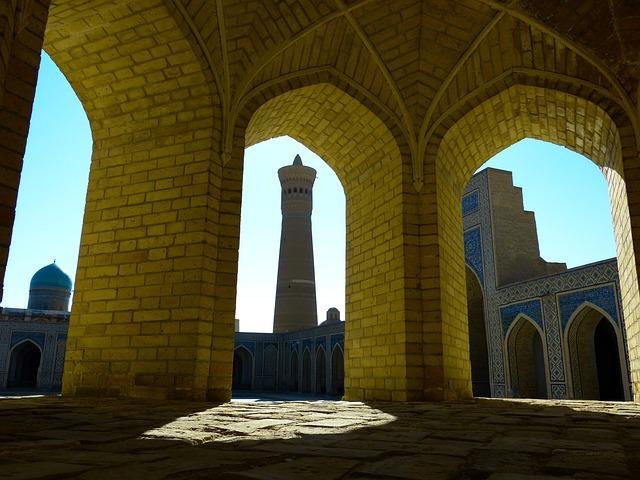Are you an intrepid traveler with a thirst for history, architecture, and knowlege? Educational travel in Uzbekistan, especially in the grand city of Bukhara, offers an unforgettable journey through time. This ancient city is not only adorned with Islamic masterpieces and mesmerizing bazaars but also stands as a beacon for scholarly achievement in Central Asia. In this thorough guide, uncover captivating university facts, must-see academic landmarks, practical tips, and the enduring legacy of learning that makes Bukhara an idyllic destination for education-focused travelers.
Why Choose Bukhara for Education-Focused Travel?
Situated along the Silk Road, Bukhara has been a thriving nexus of art, science, and religion for over a millennium. It once served as a crossroads for scholars from across Asia and the Islamic world. For those seeking to weave meaningful learning into their travels, Bukhara offers:
- Ancient Universities & Madrassahs: Historic educational institutions renowned for their architecture and intellectual legacy.
- Inspiring Historical Facts: Stories from golden eras where scholars pushed the frontiers of science, philosophy, and theology.
- Cultural Immersion: Walk the corridors of learning where past students changed the course of medicine, astronomy, and literature.
- Photogenic Landmarks: Iconic sites that blend exquisite artistry with educational heritage.
Top Historic Universities & Madrassahs to Visit in Bukhara
Uzbekistan’s educational history is embodied in its grand madrassahs and universities.Here are the must-visit sites in Bukhara for every education enthusiast:
1. Mir-i-Arab Madrassah
- Founded: 16th century (1535–1536)
- Significance: Still operating as one of Central Asia’s oldest Islamic universities,the Mir-i-Arab Madrassah is a shining emblem of Bukhara’s spiritual and academic heritage. This madrassah educated generations of prominent theologians and continues to attract budding scholars worldwide.
- What to Expect: Ornate blue tilework, domes, and peaceful courtyards that echo centuries of learning and debate.
2. Ulugh Beg Madrassah
- Founded: 15th century (1417–1420)
- Significance: Built by the legendary mathematician and astronomer, Ulugh Beg, known for creating the great Samarkand Observatory. The madrassah in Bukhara is a testament to his vision of blending science with religious study, and once attracted students from persia, India, and even further afield.
- What to Expect: Admire the façade’s intricate mosaics while recalling that this was once a center of learning in mathematics and philosophy.
3. Abdulaziz Khan Madrassah
- Founded: 1652
- Significance: Named after the ruler who championed learning and cultural evolution in Bukhara. Remarkably preserved, its elaborate tilework and spacious halls tell the tale of a golden age for science and education in the region.
- What to Expect: Peer into classrooms where lectures in logic, calligraphy, and astronomy once took place, with lavish ornamentation surrounding every arch and wall.
4. kukeldash Madrassah
- Founded: 1568–1569
- Significance: One of Bukhara’s largest and most legendary madrassahs, a true symbol of educational prestige in the region.Many renowned scholars of the 16th and 17th centuries were educated here.
- What to expect: Explore its bustling central courtyard and libary nooks, visualizing the scholarly dialogues of the past.
Fascinating Educational & University Facts from Bukhara’s Past
- Medical Pioneers: Avicenna (Ibn Sina), a Bukhara native and author of “The Canon of Medicine,” learned and taught in Bukhara. His legacy continues to inspire medical students worldwide.
- Astronomy & Mathematics: Bukhara’s madrassahs supported rigorous studies in mathematics and astronomy, attracting learners from as far as China and India.
- Multilingual Curriculum: Ancient universities in Uzbekistan often included Persian,Arabic,and Turkic languages in instruction,reflecting the region’s cosmopolitan flavor.
- Gender & Learning: Historical records tell of several women scholars who contributed to Bukhara’s intellectual tapestry, particularly in literature and Sufism.
Benefits of Educational Travel in Bukhara
Venturing on an education-themed trip to Bukhara offers immense rewards—not only for students and teachers but for lifelong learners and history buffs:
- Cultural Understanding: Experience a fusion of Persian, Arab, Mongol, and Turkic influences that have shaped education in Bukhara for centuries.
- Inspiration: See first-hand how knowledge flourished amid diversity, tolerance, and intellectual freedom.
- Authentic Encounters: Meet present-day teachers and students, some of whom are direct descendants of ancient scholars.
- Personal Growth: Walk away with a deeper appreciation for world history, interfaith dialogue, and the role of science in medieval societies.
Practical Tips for Education-Related Travel in Uzbekistan
To make the most of your learning adventure in Bukhara and beyond, consider these essential travel tips:
- Best Time to Visit: Spring (April–May) and fall (September–October) offer pleasant temperatures for walking and exploration.
- Guided Tours: Choose guides specializing in educational history or join student-led tours for authentic discussions.
- Respect Local Customs: Dress modestly, especially when visiting active madrassahs and religious sites.
- Stay Connected: bukhara’s old town features several boutique hotels and hostels with Wi-Fi, making it easy to plan daily learning excursions.
- Prepare for Language: While Uzbek is widely spoken, Russian and some English are also common in academic settings. Learning a few basic phrases can enrich your interactions.
- Photography Tips: Ask permission before taking photos inside madrassahs or classrooms, especially during prayer times or lectures.
case Study: A Student’s outlook on Bukhara’s Educational Heritage
Zarina, an architecture student from Germany, shares: “Visiting the ulugh Beg Madrassah was life-changing. I was amazed by the mathematical precision of the design and thrilled to learn that scholars once solved astronomical problems under the same arches. Our local guide introduced us to a teacher who demonstrated how ancient lecture methods still influence modern classes. I left inspired and resolute to intertwine history with my own studies.”
Planning Your Educational Itinerary in Bukhara
To craft a memorable journey focused on Bukhara’s educational gems:
- List Your Priorities: decide whether you’re more interested in ancient universities, libraries, or student life.
- Combine Learning with Leisure: Pair a visit to the Mir-i-Arab Madrassah with a stroll through Bukhara’s covered bazaars or a conventional Uzbek meal in the Lyabi-Hauz complex.
- Engage with Locals: Arrange a meeting with students or professors at one of Bukhara’s modern educational institutions for unique dialogue and cultural interchange.
- Attend a Workshop: Many madrassahs host calligraphy,ceramics,or traditional music workshops perfect for hands-on learning.
Preserving Bukhara’s Education Heritage for Future Travelers
Uzbekistan places high value on restoring and maintaining its historical educational sites. Visitor entry fees directly support preservation efforts and educational programs for local youth. By exploring these storied universities and schools, you help sustain Bukhara’s role as a global learning crossroads.
Conclusion: Awaken the Scholar Within in Bukhara, Uzbekistan
Whether you’re a solo traveler, part of a study-abroad program, or simply a history lover, educational travel in Bukhara promises insight, inspiration, and awe. Stand in awe of majestic madrassahs where world-changing ideas once flourished, soak in centuries of academic excellence, and return home with a deeper understanding of both the past and your own intellectual journey. Bukhara awaits—let your curiosity guide your quest for knowledge in the heart of Uzbekistan!








0 Comments